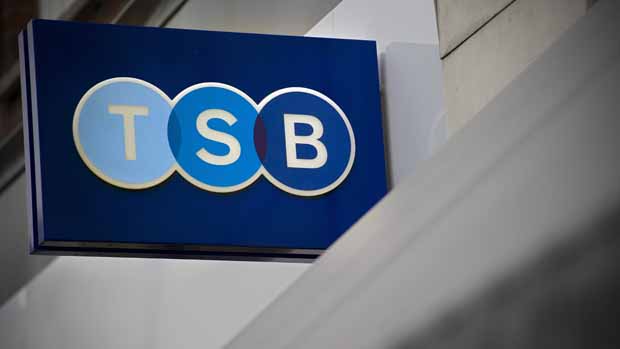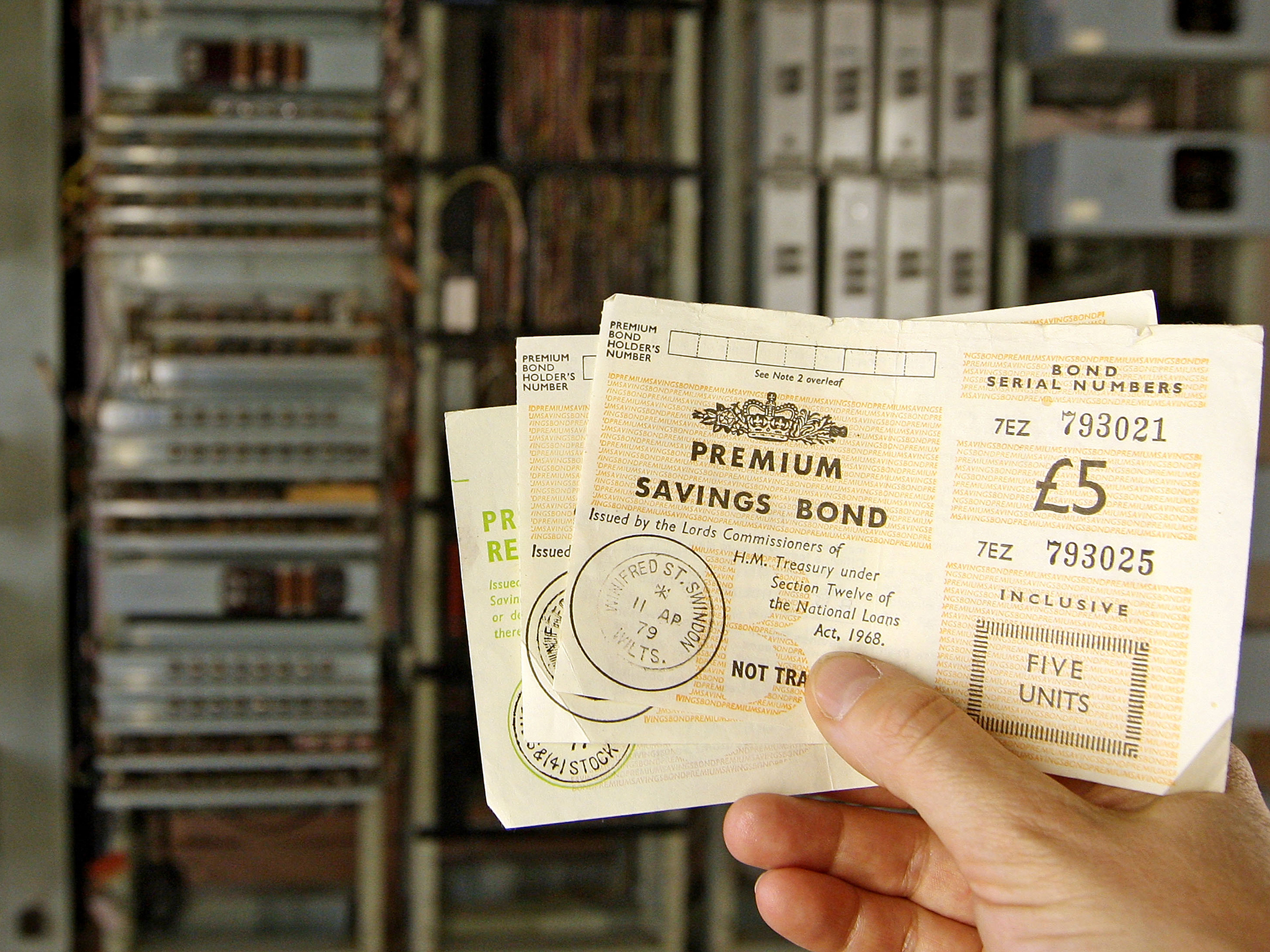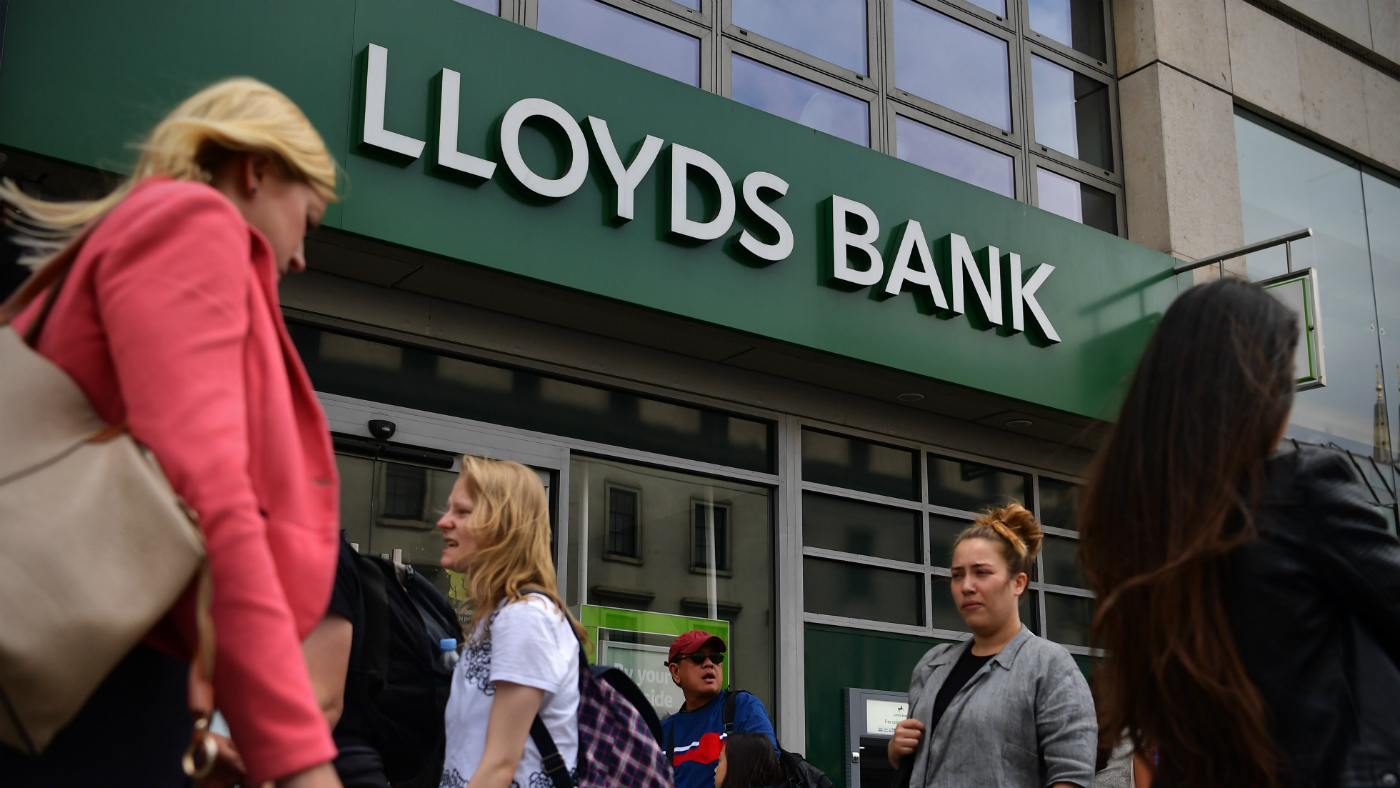TSB share boost: will they make a good investment?
Unexpectedly high demand for TSB shares has led Lloyds to sell a larger stake in the new bank

A free daily email with the biggest news stories of the day – and the best features from TheWeek.com
You are now subscribed
Your newsletter sign-up was successful
Lloyds will sell more TSB shares than previously expected after healthy demand for a stake in the new high-street bank.
"Institutional and retail investors have clamoured to buy shares over the past few days, according to informed sources," The Times reports. "In response, Lloyds will increase the amount of the bank it will sell off from 25 per cent to 35 per cent."
Lloyds is also expected to announce that it will price TSB shares at 260p, which would value the bank at £1.3bn. That is below its book value of £1.6bn, but above what many analysts were predicting last week.
The Week
Escape your echo chamber. Get the facts behind the news, plus analysis from multiple perspectives.

Sign up for The Week's Free Newsletters
From our morning news briefing to a weekly Good News Newsletter, get the best of The Week delivered directly to your inbox.
From our morning news briefing to a weekly Good News Newsletter, get the best of The Week delivered directly to your inbox.
The TSB share offer poses a dilemma for small investors. Banks have traditionally been regarded as both stable and highly profitable, but the credit crunch and taxpayer bail-outs put an end to all that.
Even though TSB shares will be priced attractively, and demand appears to have been picking up in recent days, most observers doubt that this flotation will match the interest of the Royal Mail privatisation last autumn.
How many TSB shares can you buy?
You must spend at least £750, which would buy about 300 shares at the middle of the price range. There is no upper limit to how many shares you can apply for, but if the offer is oversubscribed you may not get the full allocation. However, unlike with the Royal Mail flotation, analysts do not expect excessive demand for the TSB share offer.
A free daily email with the biggest news stories of the day – and the best features from TheWeek.com
Reasons to buy TSB shares
To start with the positive, many in the industry see TSB as a chance for a fresh start for the banking industry. The brand is relatively untarnished by the credit crunch, having lain dormant within Lloyds Banking Group, and the new bank be insulated from the financial effects of past scandals.
"They're coming out with essentially a clean slate," Nate Weisshaar said on the Motley Fool's Money Talk Podcast. "They've got no exposure to any bad selling practices that may have occurred over the past several years. Lloyds is taking all the blame for that, and letting TSB come away clean."
While its fresh brand gives it a marketing boost, TSB's ties to Lloyds provide a more concrete advantage. The new bank will make use of its parent company's IT and regulatory infrastructure, which will help to keep costs down.
Unlike its bigger rivals, TSB is expected to remain a simple retail bank that steers clear of riskier "casino" operations.
"Risks to its profitability in the short to medium term should be low, with ample scope to develop a growth-led proposition commensurate with an attractive and progressive dividend," Ian Gordon, a banking analyst at Investec told the Daily Telegraph.
He said he expected TSB would soon be providing returns of ten per cent, which is seen as a benchmark in the banking industry. And there's another good reason to see TSB as a longer term investment: retail investors will get one free share for every 20 they subscribe to, up to a maximum value of £2,000, as long as they hold their stock for at least a year after the offering.
The recent suggestion from Mark Carney, Governor of the Bank of England, that interest rates may soon start to rise, has also improved the outlook for TSB, which would benefit from higher rates.
Reasons not to buy TSB shares
Rob James, banking analyst at Old Mutual Global Investors, agrees that returns of ten per cent would make TSB a good investment, but does not share Gordon's belief that the new bank will quickly deliver that profit.
"In the official press release TSB put out about the float, it said it would 'work towards achieving' a 10 per cent return on equity in the next five years – not even saying it will achieve it, just that it will work towards achieving it," he told What Investment.
"An investor is likely to have to wait five years anyway, and might not even get a double-digit return on equity at the end. … An investor would want to be buying at a very substantial discount to book value."
TSB has already said that it will not pay any dividend until at least 2017.
Chris White, head of UK equities at Premier Asset Management, told the same publication that TSB will struggle to attract new and profitable customers.
"People don't change current account very often and that makes it difficult for TSB to grow its return on equity," he said.
Potential investors may also be put off by the recent disclosure that TSB has a disproportionate exposure to high-risk interest only loans.
"Bankers spoken to by The Independent described the fact that 45 per cent of its residential mortgages are interest-only loans as 'extraordinary', 'eye opening' and 'extremely high'," the paper reported.
Finally, AOL Money suggests that anyone thinking of buying TSB shares should consider whether they are already over-exposed to the banking sector.
"The big four banks have a combined market value of £232 billion, which is an eighth (12.5%) of the FTSE 100's total market capitalisation of £1,862 billion," it reports. "In short, you may already have a sizeable proportion of your portfolio tied up in British banking."
TSB shares to sell at bargain price amid IPO market jitters
9 June
TSB Banking Group shares will be sold at between 220p and 290p, with small investors offered free shares in the newly listed bank.
Lloyds, which has to sell off TSB as a condition of its government bailout, plans to sell a quarter of its shares in TSB through a listing on the London stock market. The mid-point of the range values the business at £1.275bn, which is below its book value of £1.6bn.
Investors will get one free share for every 20 shares they buy and hold for a year after the flotation, up to the value of £2,000.
TSB's more "cautious" valuation comes amid "jitters" in the initial public offering (IPO) market, says the Financial Times. Investors are treading warily following disappointing performances from recent floats such as the Saga insurance group, it says.
The Co-operative Bank was expected to buy TSB, but the deal fell through when the Co-op discovered a £1.5bn black hole[4] in its own finances. The FT notes that despite TSB floating for less than its book value, it is still more than the £750m Lloyds would have received from the Co-op had the proposed sale gone through.
TSB has 631 branches and 4.5 million retail customers, making it the seventh largest retail bank in the UK. Under European Union rules on state aid, Lloyds has to scale back its size after being bailed out by the UK government in 2008. The banking group must sell its remaining stake in TSB before the end of 2015.
The final price of the shares is expected to be announced later this month, with conditional dealings in the shares starting on the same day. The BBC notes that the part-nationalised Royal Bank of Scotland sold its Direct Line insurance business in stages, with each tranche priced higher than the previous sale.
TSB shares to float: what is on offer for retail investors?
27 May
Lloyds Banking Group has announced plans to float a quarter of its TSB business on the London stock market, including free loyalty shares as a sweetener for retail investors. TSB, which became a standalone business last September, has 631 branches and 4.5 million retail customers, making it the seventh largest retail bank in the UK. The sale is expected to value the bank at around £1.5bn, but it comes as City analysts warn of a waning interest in stock market flotations.
Why is Lloyds selling shares in TSB?Under European Commission competition laws, Lloyds was required to sell a portion of its business when it received £20.5bn of rescue capital from UK taxpayers in 2009. Lloyds had planned to sell more than 630 branches, rebranded as TSB Bank, to the Co-operative Bank for £750m in July 2012 – but this deal fell through when the Co-op discovered a £1.5bn black hole in its own finances. Lloyds therefore decided to continue with the rebranding and sell TSB Bank through an initial public offering. Lloyds, which is still 25 per cent owned by taxpayers, must sell its remaining stake in TSB before the end of 2015.
When do TSB shares go on sale?The sale is set to take place next month, with the majority of shares offered to institutional investors. The bank also hopes to sell between 15 and 30 per cent of the shares to ordinary investors through intermediaries.
What is on offer for investors? TSB has warned that it will not be in a position to pay dividends until 2017, acknowledging that this could affect the valuation of the business. As a sweetener, retail investors are being offered one free share for every 20 they subscribe to, up to a maximum of £2,000, on the condition that they hold the extra stock for at least one year after the listing.
Why the three-year dividend blackout?TSB plans to plough money back into the business in a bid to grab market share from its rivals on the high street. Spare profits will be reinvested in infrastructure, additional branches and advertising, says The Times. Politicians and regulators are hoping that TSB will provide a boost for competition in retail banking, where the market for current accounts is still dominated by five big names: Lloyds, HSBC, Barclays, RBS and Santander.
Will TSB succeed?António Horta-Osório, Lloyds Banking Group chief executive, has promised TSB will be a "real challenger on the high street". It is a completely clean bank, he says, untainted by the financial crisis. It has a national network of branches, a strong balance sheet and significant economic protection against legacy issues, he added. TSB is apparently hoping to entice a net 1.5 million primary current accounts from rivals, boosting its market share from 4.2 per cent to more than six per cent within six years.
But some analysts are sceptical that it will shake-up the market in its early days. Banking analyst Chris Skinner notes that several "challenger banks" are already being launched into the UK economy, such as Handelsbanken, Metro and Tesco. "Over time we'll end up probably again with just a few that actually succeed," he told the BBC.
Other analysts have warned of a growing "flotation fatigue" following a recent rush from companies to list their shares, reports The Guardian. The TSB flotation comes after institutional investors made losses on recent initial public offerings, including Just Eat, Pets at Home and Card Factory. Insurance group Saga recently priced its flotation at the bottom end of its price range, while retailer Fat Face decided to shelve its IPO after failing to get the price it wanted.
-
 How corrupt is the UK?
How corrupt is the UK?The Explainer Decline in standards ‘risks becoming a defining feature of our political culture’ as Britain falls to lowest ever score on global index
-
 Best places to find snowdrops in the UK
Best places to find snowdrops in the UKThe Week Recommends The snowdrop season is upon us, with ‘blankets’ of the beautiful bloom signalling that spring is on its way
-
 The 8 best superhero movies of all time
The 8 best superhero movies of all timethe week recommends A genre that now dominates studio filmmaking once struggled to get anyone to take it seriously
-
 Brits keeping 21 million ‘money secrets’ from friends and family, survey reveals
Brits keeping 21 million ‘money secrets’ from friends and family, survey revealsSpeed Read Four in ten people admit staying quiet or telling fibs about debts or savings
-
 London renters swap cramped flats for space in suburbia
London renters swap cramped flats for space in suburbiaSpeed Read New figures show tenants are leaving Britain's cities and looking to upsize
-
 Should the mortgage holiday scheme have been extended?
Should the mortgage holiday scheme have been extended?Speed Read Banks warn that some homeowners may struggle to repay additional debt
-
 RBS offers coronavirus mortgage holidays
RBS offers coronavirus mortgage holidaysSpeed Read Taxpayer-owned bank follows measures taken in virus-struck Italy
-
 What are the changes to National Savings payouts?
What are the changes to National Savings payouts?Speed Read National Savings & Investments cuts dividends and prizes for bonds
-
 China clears path to new digital currency
China clears path to new digital currencySpeed Read Unlike other cryptocurrencies, Beijing’s would increase central control of the financial system
-
 Why are donations surging to the RNLI?
Why are donations surging to the RNLI?Speed Read Charity enjoys flood of funding after criticism for overseas work
-
 PPI deadline day: how to claim
PPI deadline day: how to claimSpeed Read Final chance for consumers to apply for compensation